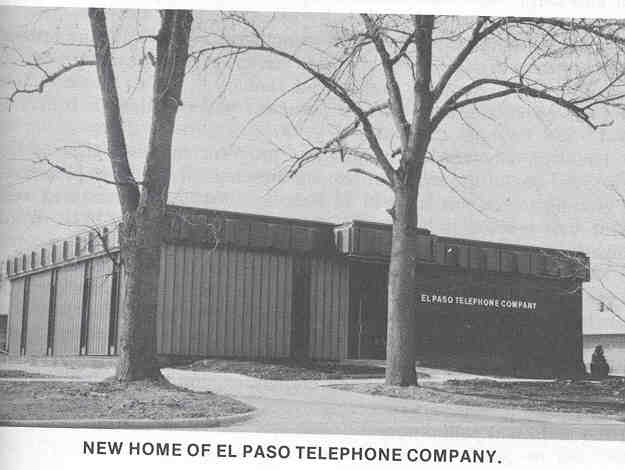
El Paso's progressive citizens demanded a full time communications center, so in 1901, the El Paso Telephone Company was incorporated. A small two-story brick building measuring 24 feet x 24 feet housed a 150-line board and rack, with the board upstairs for security and the distribution frame on the main floor. The company soon had the grand total of 60 box-type wall telephones in service and the alleys of business houses were filled with poles and wires. Two women served as daytime operators, working from 7 a.m. to 6 p.m. seven days a week for a salary of $2.50 a week. One man, who later became vice president and general manager of the Pacific Telephone Company of the Northwest, served as installer, trouble-shooter and night operator until 9:00 p.m. for a salary of $60 a month.
By 1913, the company's growth was so great that a new building replaced the original structure. The staff consisted of five operators, a secretary-operator who handled collections, one full time wire chief, and a helper. The rural lines had been built to the city limits for switching, and it became possible to get a toll call through to completion with in twenty minutes. Business was booming.
In 1920, the company became the second plant in the state to place the entire urban lines in lead cable. The company encouraged its rural subscribers to convert to metallic circuits and installed common battery phones within the urban limits – a 600-line unit with growth potential.
Toll service became the vogue. The company's Illinois Bell lines, via Peoria, were busy 24 hours a day. El Paso continued as a toll center.

New home of the El Paso Telephone Company.
Page 341